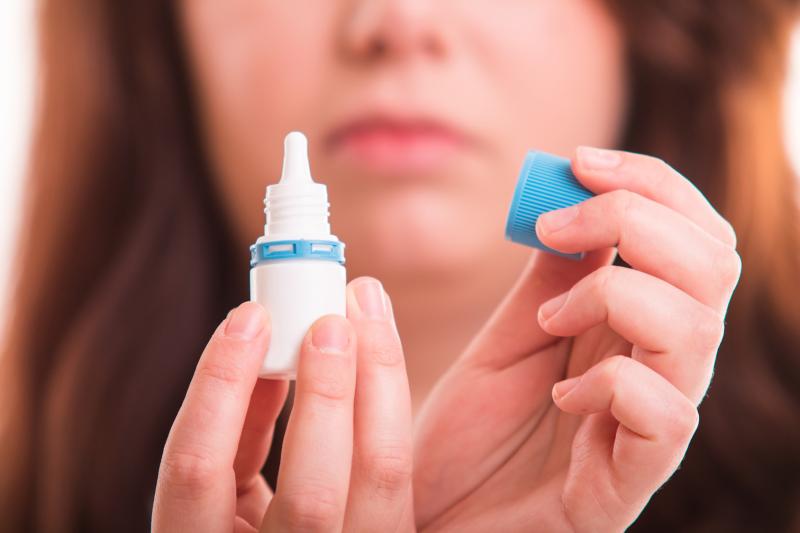
A topical ophthalmic suspension combination of povidone-iodine (PVP-I; 0.6%) and dexamethasone (DEX; 0.1%) appears to confer no clinical benefits to patients with bacterial conjunctivitis, according to the results of a phase III trial.
The trial randomized 753 patients (mean age, 44.3 years; 61.2 percent female) to treatment with PVP-I/DEX (n=324), PVP-I alone (n=108) or placebo (n=321). Treatment (one drop) was administered four times a day for 7 days. Evaluations were conducted on days 3, 5, 8 and 12.
Mean treatment compliance was >98 percent. The primary endpoint was clinical resolution in the study eye, while the secondary efficacy endpoint was bacterial eradication, both at day 5. Adverse events (AEs) were recorded at all visits.
The modified intention-to-treat population for the efficacy analysis involved 526 patients. There was no significant difference in the number of patients who achieved clinical resolution in the study eye at day 5: 50.5 percent (111/220) in the PVP-I/DEX arm vs 42.8 percent (95/222) in the placebo arm (p=0.127). The same was true for bacterial eradication: 43.3 percent (94/217) vs 46.8 percent (102/218), respectively (p=0.500).
Treatment-emergent AEs were documented in 32.8 percent (106/323), 39.8 percent (43/108) and 19.0 percent (61/321) of patients in the PVP-I/DEX, PVP-I and placebo arms, respectively. Most AEs were mild in severity.
The trial had several limitations, including the possibility that randomized patients had viral conjunctivitis that was not caused by adenovirus, the researchers said. Moreover, the posology of PVP-I in the study combination may not have been appropriate.
More dose-ranging studies are required to determine the optimal PVP-I concentration for use in bacterial conjunctivitis, although the researchers cautioned that PVP-I concentrations >1.25% may decrease tolerability.